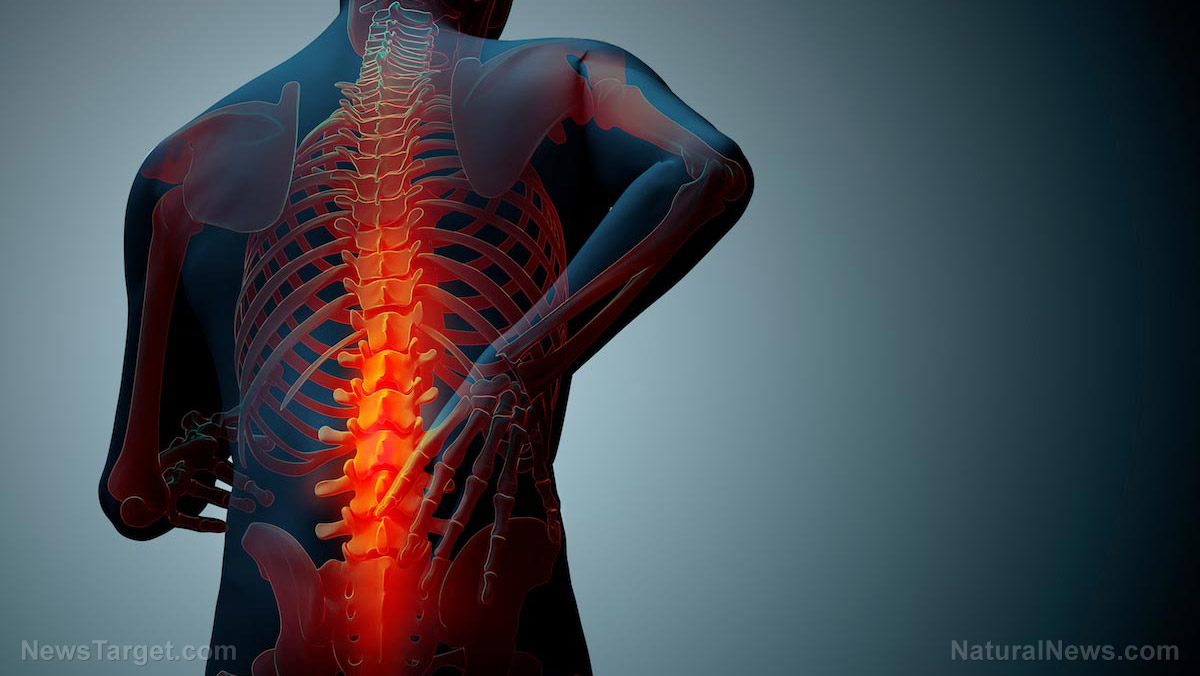Electrostimulation device found to drastically reduce back pain in 50% of patients; may avoid the risks of back surgery
11/23/2018 / By Rhonda Johansson

A breakthrough neurostimulation system may prove useful for patients suffering from chronic back pain. ReActiv8, a medical device developed by Mainstay Medical International, is awaiting pre-market approval from the U.S. Food and Drug Administration (FDA) and, if approved, could help the millions of Americans living with this debilitating condition. The gadget works similar to a pacemaker; surgeons would fit the device beneath the skin at the base of the spine. ReActiv8 would then send electrical impulses around the spine, which would stimulate the unused muscles and alleviate any discomfort or pain.
A new study, reported by DailyMail.co.uk, concluded that the device helped 50 percent of tested British participants within three months. The Barts Health NHS Trust trial observed around 53 patients across Europe and Australia with chronic back pain and fitted them with the ReActiv8 gadget. A stimulation response was triggered for 30 minutes each morning and evening. Dr. Vivek Mehta, a consultant in pain medicine at St. Bartholomew’s Hospital found that 80 percent of the patients fitted with the device reported positive results. “The data that I’m presenting is that the patients are quite satisfied with the level of stimulation and they can carry on with their work as they would normally do,” he enthused to the publication.
The Mainstay Medical device includes two leads which “are placed bilaterally near the medial branch of the dorsal ramus nerve at the L3 vertebra, and are connected to a small battery powered implantable pulse generator (IPG). The IPG generates the electrical pulses delivered via the leads to the nerves to activate the muscles,” reads the official press statement on their website. Initial setup would have the device sending electrical impulses for 30 minutes twice a day; although developers at Mainstay Medical have stated that the duration can be amended depending on the severity of the pain being experienced by the patient.

ReActiv8 is fitted in such a way that it would not interfere with the patient’s day-to-day activities. This, above all the other benefits, is what Timothy Deer, clinical professor of anaesthesiology and pain medicine at West Virginia University calls “exciting.”
He further adds, “Some of these patients can’t work or spend time with their families, so this is about changing their lives as much as about reducing their pain.”
The ReActiv8 device won the European approval to be marketed and made its first commercial sale in Germany in February of this year. The medical company has announced their plans to expand to the U.S.
In an article written on IrishTimes.com, Mainstay Medical noted that the device is an ideal option for patients with chronic back pain caused by an impaired control of their back muscles. Dr. Francis Kilian, the head surgeon who designed the device was noted as saying, “ReActiv8 represents a significant breakthrough for this large group of patients who are not candidates for spine surgery.”
An alternative to pain medications
Conflicting data on the efficacy of painkillers coupled with more people reporting experiencing some form of back pain have prompted medical researchers to find better, more efficient solutions to back pain. According to the American Chiropractic Association (ACA), around 31 million Americans suffer from low-back pain at any given time. The pain, while not acute in most cases, is disabling enough to be noted as the most common reason for missed work. The group noted that spinal health can be improved with proper diet and exercise. Additionally, the ACA cautioned relying too heavily on pain killers as these are now being seen as ineffective. (Related: Anti-Inflammatory Painkillers Actually Worsen Dementia.)
A recent study published in the Annals of the Rheumatic Diseases concluded that common painkillers for the treatment of back pain do not work and may even cause severe gastrointestinal side effects. Lead researcher of the study, associate professor Manuela Ferreira, urged the medical community to develop new therapies that do not involve prescribing painkillers.
“Back pain is the leading cause of disability worldwide and is commonly managed by prescribing medicines such as anti-inflammatories. But our results show anti-inflammatory drugs actually only provide very limited short term pain relief. They do reduce the level of pain, but only very slightly, and arguably not of any clinical significance,” she said on NationalPainReport.com.
See more coverage at BackPain.news.
Sources include:
Submit a correction >>
Tagged Under:
alternative medicine, anti-inflammatory drugs, back pain, chronic back pain, chronic lower back pain, inventions, medical technology, natural medicine, pain relief, painkillers, reserach
This article may contain statements that reflect the opinion of the author





















